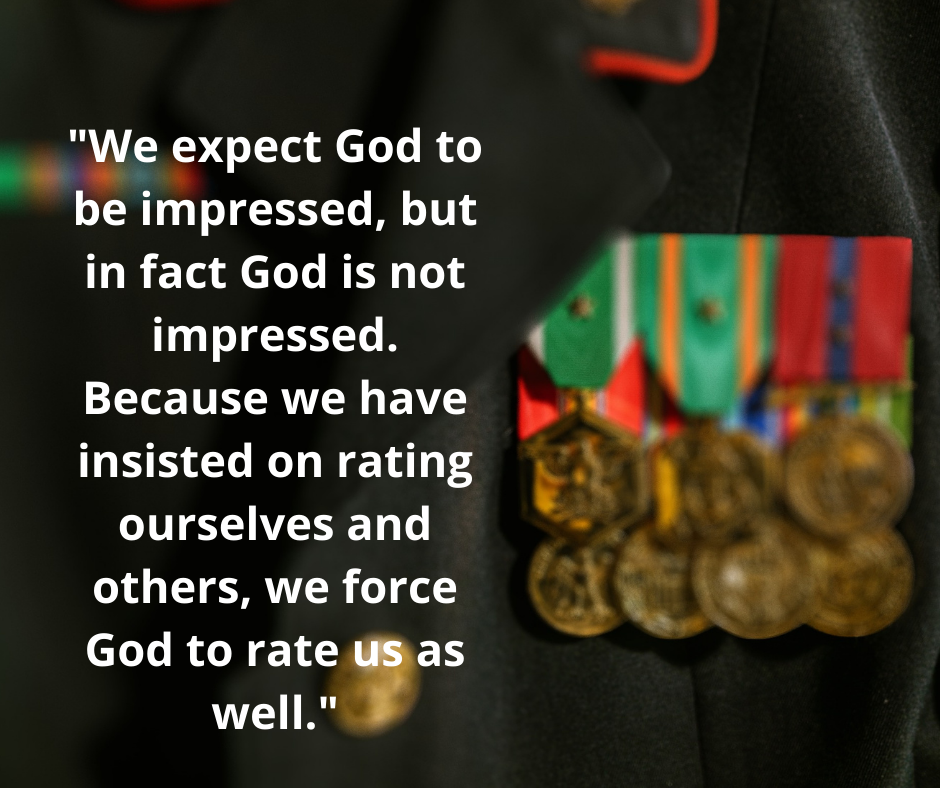Your Credentials, Please
Colossians 1:15-28
Sixth Sunday after Pentecost
Analysis by Cathy Lessmann
15He is the image of the invisible God, the firstborn of all creation; 16for in him all things in heaven and on earth were created, things visible and invisible, whether thrones or dominions or rulers or powers – all things have been created through him and for him. 17He himself is before all things, and in him all things hold together. 18He is the head of the body, the church; he is the beginning, the firstborn from the dead, so that he might come to have first place in everything. 19For in him all the fullness of God was pleased to dwell, 20and through him God was pleased to reconcile to himself all things, whether on earth or in heaven, by making peace through the blood of his cross.
21And you who were once estranged and hostile in mind, doing evil deeds, 22he has now reconciled in his fleshly body through death, so as to present you holy and blameless and irreproachable before him – 23provided that you continue securely established and steadfast in the faith, without shifting from the hope promised by the gospel that you heard, which has been proclaimed to every creature under heaven. I, Paul, became a servant of this gospel.
24I am now rejoicing in my sufferings for your sake, and in my flesh I am completing what is lacking in Christ’s afflictions for the sake of his body, that is, the church. 25I became its servant according to God’s commission that was given to me for you, to make the word of God fully known, 26the mystery that has been hidden throughout the ages and generations but has now been revealed to his saints. 27To them God chose to make known how great among the Gentiles are the riches of the glory of this mystery, which is Christ in you, the hope of glory. 28It is he whom we proclaim, warning everyone and teaching everyone in all wisdom, so that we may present everyone mature in Christ.

Mosaic of the Ravenna Italo-Bizina school, completed in 526. Wikipedia
Can you believe it? Jesus, the Son of God, with all the power of the universe at his disposal, gave it all up to join us humans in our suffering, our guilt, our deceptions, and especially, our deaths.
DIAGNOSIS: The Problem with Credentials
Step 1: Initial Diagnosis (External Problem): Credentials Really Impress Us
Paul nails us all when he says, “And you who were once estranged and hostile in mind, doing evil deeds….” Whaaat? Us? Doing evil deeds? We can’t be that bad! But sadly, history proves we are, as it chronicles how we humans exploit, denigrate, abuse, and destroy each other. Our motto seems to be: If someone is going to suffer—even for my faults, it’s not going to be me—it’s going to be you! In fact, you are here for my purposes. I should be the one who survives.
Step 2: Advanced Diagnosis (Internal Problem): Getting to the Root
The heart of such egocentrism is exactly that—egocentrism in our hearts! (Luther called that sin “the heart curved inwards.”) Maybe that’s why we’re so impressed—and dependent upon—our credentials. We seem especially impressed if someone comes from “nobility,” or has amassed immense wealth, or is so intelligent that he/she came up with a revolutionary invention. We would love to have those credentials for ourselves. When we don’t have them, we cling to hidden credentials, such as the color of our skin, or our sex, or our good looks to cover up our inadequacies, our wrongs, our guilt. With this arrogance, we assume God must be equally as impressed with our credentials as we are.
Step 3: Final Diagnosis (Eternal Problem): Credentials Are Cover-Ups
Sigh. We expect God to be impressed, but in fact God is not impressed. Because we have insisted on rating ourselves and others, we force God to rate us as well. And, above all else, God is fair. Meaning: It is we who must suffer for our evil and our misdeeds. That’s the verdict of the system we have chosen. Our credentialing boomerangs on us. What we have dumped on others—guilt, shame, suffering—comes back to haunt us. Our cover-ups, our guilt, are exposed.

Image taken by @rodnae-prod on Pexels and edited with Canva
PROGNOSIS: A Whole New Set of Credentials
Step 4: Initial Prognosis (Eternal Solution): Jesus Exchanges His Credentials
Speaking of credentials, take a look at Jesus’ credentials. You can’t get any more impressive than that! “He is the image of the invisible God, the firstborn of all creation… in him all things in heaven and on earth were created, … in him all things hold together…” and so on. But can you believe it? Jesus, the Son of God, with all the power of the universe at his disposal, gave it all up to join us humans in our suffering, our guilt, our deceptions, and especially, our deaths. “Hand it over,” Jesus says, “I’ll take your sin/guilt and suffer your consequences. Come to find out, that enormous, self-giving love ultimately impressed Almighty God to the point of raising/rescuing Jesus from death and hell. “Through him God was pleased to reconcile to himself all things, whether on earth or in heaven, by making peace through the blood of his cross” (v. 20).
Step 5: Advanced Prognosis (Internal Solution): Re-Credentialed
Come to find out, Jesus had a different set of credentials, which he inherited from Almighty God. Namely, incredible love and incredible mercy. When Jesus took our sins to the cross and suffered them away, he also swapped his credentials for ours, which means, we become beloved children of God. It’s no fair of course, but why not take it, as a gift? So, we trust him. As Paul says, Christ is now in us (v. 27, … “which is Christ in you, the hope of glory”).
Step 6: Final Prognosis (External Solution): Re-Directed
There’s something about grace and mercy that changes egocentric hearts into hearts willing to suffer and die for each other—whether they deserve it or not. It’s really quite amazing how behavior changes. Like Paul, we are even able to rejoice when we suffer for others (v. 24, “I am now rejoicing in my sufferings for your sake….”). Listen in: “Ouch, dear parent, dear spouse, dear friend…. You’ve really nailed me this time. It hurts like crazy. But I’m not going to retaliate. Here, take my hand.” Or, “Dear friend, (or stranger), I can tell you’re carrying a heavy burden. Can you tell me about it? Can I help you?” Or, “Dear one, I see you are walking through the ‘valley of the shadow.’ May I walk with you?”



You must be logged in to post a comment.